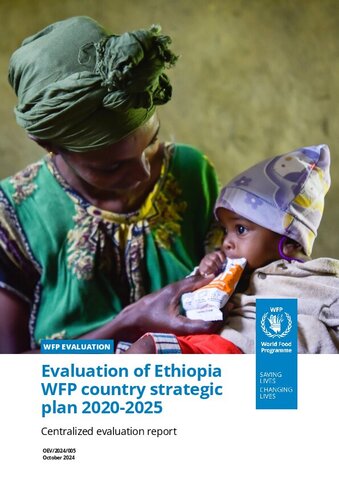
The evaluation found that the areas of action supported by WFP – continued relief for conflict-affected people, nutrition, school meals, and resilience and livelihoods – were highly relevant and solidly grounded in evidence of needs. While a shift in geographical focus from southern to northern Ethiopia and the scale-up of the emergency response demonstrated WFP’s flexibility in responding to changing needs, emergency preparedness was insufficient and the CSP provided limited strategic guidance for the shift.
The ambition of the CSP and ICSP to reduce the need for humanitarian assistance by strengthening sustainable food systems through programming for resilience and livelihoods was a strategically sound response however, the expected shift in focus was impeded by gaps in country office technical capacity and operational planning, overoptimistic assumptions underpinning the CSP, especially in relation to political and macroeconomic stability, and the limited integration of relief and resilience activities.
WFP’s long-standing operational partnership with the Government and reliance on government systems for delivering relief assistance was well aligned with its objective of strengthening national emergency preparedness and response capacity but put WFP at risk of compromising the humanitarian principles. It exposed WFP to limitations in government capacity, particularly at the local level, and challenged its ability to ensure that assistance reached those most in need without discrimination.
The evaluation recommended for the next CSP to more explicitly address areas of uncertainty, to continue the shift from a “saving lives” to a “changing lives” agenda, to work towards ensuring a conducive environment for principled responses to humanitarian needs, to improve WFP’s ability to demonstrate results, to accelerate the shift from in-kind to cash-based assistance, and to improve planning for staffing needs.



